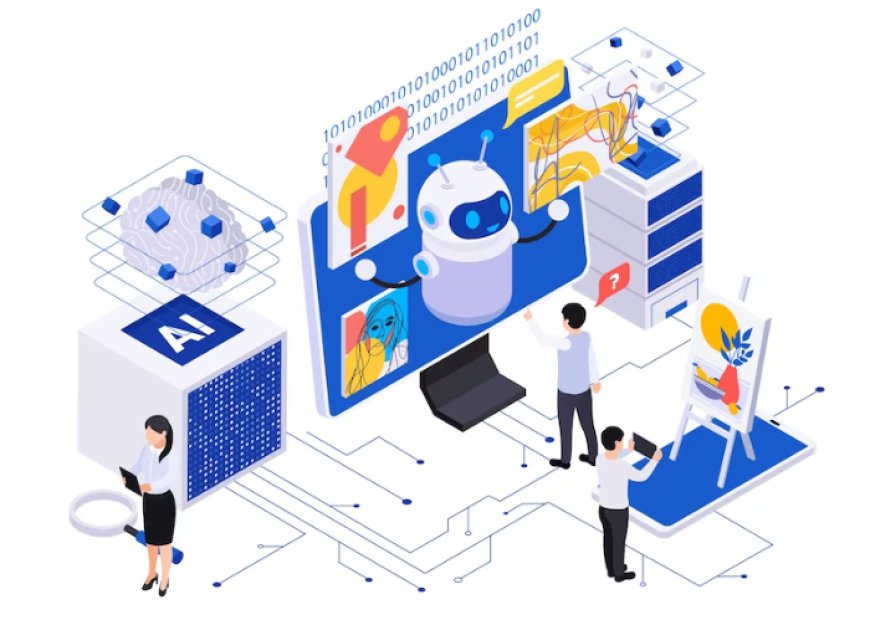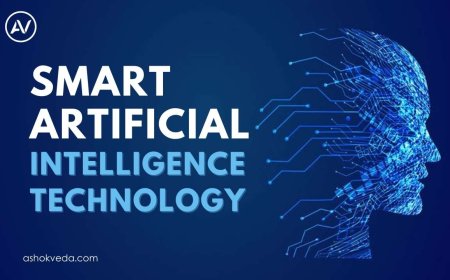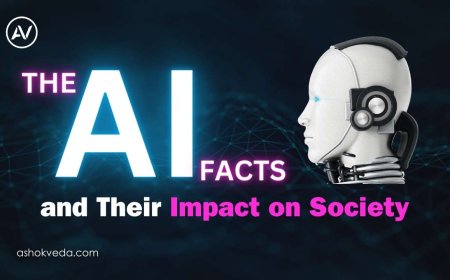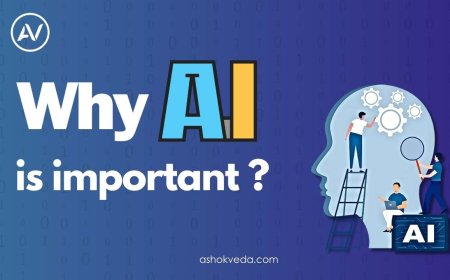The Role of AI in Marketing
Discover AI in marketing, trends, tools, automation, data analysis, personalization, customer insights, strategies, campaigns, innovation, and technology.

The intersection of artificial intelligence (AI) and marketing has completely transformed the way businesses engage with their desired audience. Incorporating AI into marketing strategies has become an essential asset for companies aiming to maintain a competitive edge. Through the utilization of data analytics, machine learning, and natural language processing, AI is reshaping conventional marketing methods, empowering businesses to customize their communication, enhance customer experiences, and achieve remarkable growth. In this article, we will explore the revolutionary influence of AI in marketing and its role in redefining the future of customer engagement.
The benefits of integrating AI in marketing are numerous, from personalized experiences to streamlined processes and enhanced customer engagement. However, navigating the complexities of data security and privacy compliance, managing AI-powered chatbots and virtual assistants, and integrating AI in marketing automation can be challenging. To overcome these obstacles, businesses must have a comprehensive understanding of data protection protocols, implement advanced AI tools for effective data analysis, develop customer-centric AI interactions, and optimize marketing strategies through automated AI processes. By balancing these elements, businesses can leverage the power of AI to drive effective marketing campaigns while safeguarding customer data and fostering long-term brand loyalty.
How can businesses use AI in marketing to improve customer experiences, address ethical concerns, and overcome implementation challenges and limitations?
Significance of AI in Marketing:
The sheer volume of data generated daily poses a significant challenge for marketers to derive actionable insights. AI has emerged as a game-changer, empowering marketers to sift through vast datasets, identify patterns, and extract meaningful information. By employing AI-driven tools, marketers can gain a comprehensive understanding of customer preferences, behavior, and purchasing patterns, allowing them to craft highly targeted and effective marketing campaigns. The ability to analyze data in real time facilitates adaptive marketing strategies that resonate with consumers on a deeper level, fostering brand loyalty and driving sales.
Personalization and Customer Experience Enhancement:
One of the most notable benefits of integrating AI into marketing strategies is the capability to deliver personalized customer experiences at scale. AI-powered algorithms can analyze customer data to create tailored content, product recommendations, and marketing messages that align with individual preferences and needs. This level of personalization fosters stronger customer relationships, enhances brand affinity, and increases the likelihood of repeat purchases. Moreover, AI-driven chatbots and virtual assistants offer immediate and round-the-clock customer support, addressing inquiries and concerns promptly, thereby improving overall customer satisfaction and retention.
Data-Driven Insights and Predictive Analytics:
AI facilitates the extraction of actionable insights from complex data sets, enabling marketers to make data-driven decisions with greater precision and confidence. By leveraging predictive analytics, businesses can anticipate future trends and customer behavior, allowing them to proactively adjust their marketing strategies for optimal results. AI-powered predictive modeling not only enhances the efficiency of marketing campaigns but also aids in identifying new market opportunities and potential areas for business growth. The ability to forecast market trends accurately gives businesses a competitive edge, enabling them to stay ahead of market fluctuations and adapt swiftly to evolving consumer demands.
Automation and Streamlined Processes:
AI automation has significantly streamlined various marketing processes, eliminating repetitive tasks and freeing up valuable time for marketers to focus on strategic planning and creative endeavors. Automated marketing tools powered by AI can manage email campaigns, social media scheduling, and lead generation, ensuring seamless and consistent engagement with the target audience across multiple channels. Furthermore, AI-driven automation optimizes advertising strategies, reducing ad spend wastage and improving the overall return on investment (ROI). The integration of AI-driven automation not only enhances operational efficiency but also enables marketers to allocate resources more effectively, maximizing productivity and overall business performance.
Ethical Considerations and Data Privacy:
While AI in marketing offers unprecedented benefits, it also raises concerns regarding data privacy and ethical considerations. Marketers must prioritize the ethical collection and use of consumer data, adhering to stringent data protection regulations to safeguard customer privacy and trust. Implementing transparent data policies and obtaining explicit consent for data usage are crucial steps in maintaining ethical AI practices. By fostering a culture of data transparency and accountability, businesses can build stronger relationships with customers based on mutual trust and respect, fostering long-term brand loyalty and credibility.
Challenges and Limitations of AI in Marketing:
Despite its numerous advantages, AI implementation in marketing is not without challenges and limitations. The initial cost of adopting AI technologies, along with the complexity of integrating AI systems into existing marketing infrastructure, can pose significant hurdles for businesses. Moreover, ensuring the accuracy and reliability of AI-generated insights requires continuous monitoring and refinement to minimize the risk of errors and bias. Additionally, the rapid evolution of AI technology necessitates ongoing training and upskilling of marketing teams to keep pace with the latest advancements and best practices. Overcoming these challenges demands a strategic and holistic approach that prioritizes continuous learning, adaptability, and resilience within the marketing ecosystem.
AI in Marketing:
Data Security and Privacy Compliance
-
Prioritize robust data security measures to protect sensitive customer information.
-
Comply with stringent privacy regulations to maintain legal and ethical standards.
-
Implement encryption protocols and conduct regular security audits to ensure data protection.
-
Transparent data handling practices are crucial for building and maintaining customer trust.
AI-Driven Analytics and Personalization
-
Utilize AI and machine learning to gain valuable insights into customer behavior and preferences.
-
Enable the creation of tailored and personalized marketing strategies based on data-driven analysis.
-
Enhance customer engagement by delivering relevant content and personalized product recommendations.
-
Foster long-term brand loyalty through a deep understanding of customer preferences and needs.
AI-powered chatbots and Virtual Assistants
-
Implement AI chatbots to provide real-time and efficient customer support.
-
Leverage Natural Language Processing (NLP) capabilities for a more human-like interaction experience.
-
Enhance overall customer experience by offering personalized recommendations and resolving issues promptly and effectively.
Integration of AI in Marketing Automation
-
Streamline repetitive tasks through the integration of AI in email marketing, social media management, and campaign optimization.
-
Save time and resources while increasing the overall efficiency and effectiveness of marketing endeavors.
-
Allow marketing teams to focus on more strategic initiatives by automating routine processes.
Future Prospects:
Advancements in AI
-
Continuous improvements in machine learning, natural language processing, and predictive analytics.
AI with Emerging Technologies
-
Integration of AI with emerging technologies like augmented reality (AR) and virtual reality (VR) to revolutionize customer-brand interactions.
-
Create immersive and personalized experiences for deeper engagement and brand loyalty.
AI-Powered Predictive Analytics
-
Predict market trends and consumer preferences for proactive decision-making and competitive advantage.
AI for Sustainability and Social Responsibility
-
AI-driven marketing tools can emphasize sustainability and social responsibility.
-
Optimize supply chains, reduce carbon footprints, and promote responsible consumption.
-
Enhance brand reputation and appeal to environmentally conscious consumers.
AI's transformative impact on marketing is revolutionizing the way businesses connect with customers, providing unmatched opportunities for customization, data-driven insights, automation, and improved customer experiences. While navigating the intricacies of AI integration, businesses must prioritize ethical data practices and tackle the challenges associated with implementing AI. By responsibly and proactively utilizing the power of AI, businesses can nurture lasting customer relationships, foster brand loyalty, and achieve sustainable growth in today's ever-evolving marketing landscape. Embracing AI as a catalyst for innovation and customer-centricity will undoubtedly pave the way for a future where seamless, personalized, and meaningful customer interactions become the foundation of successful marketing strategies.





































